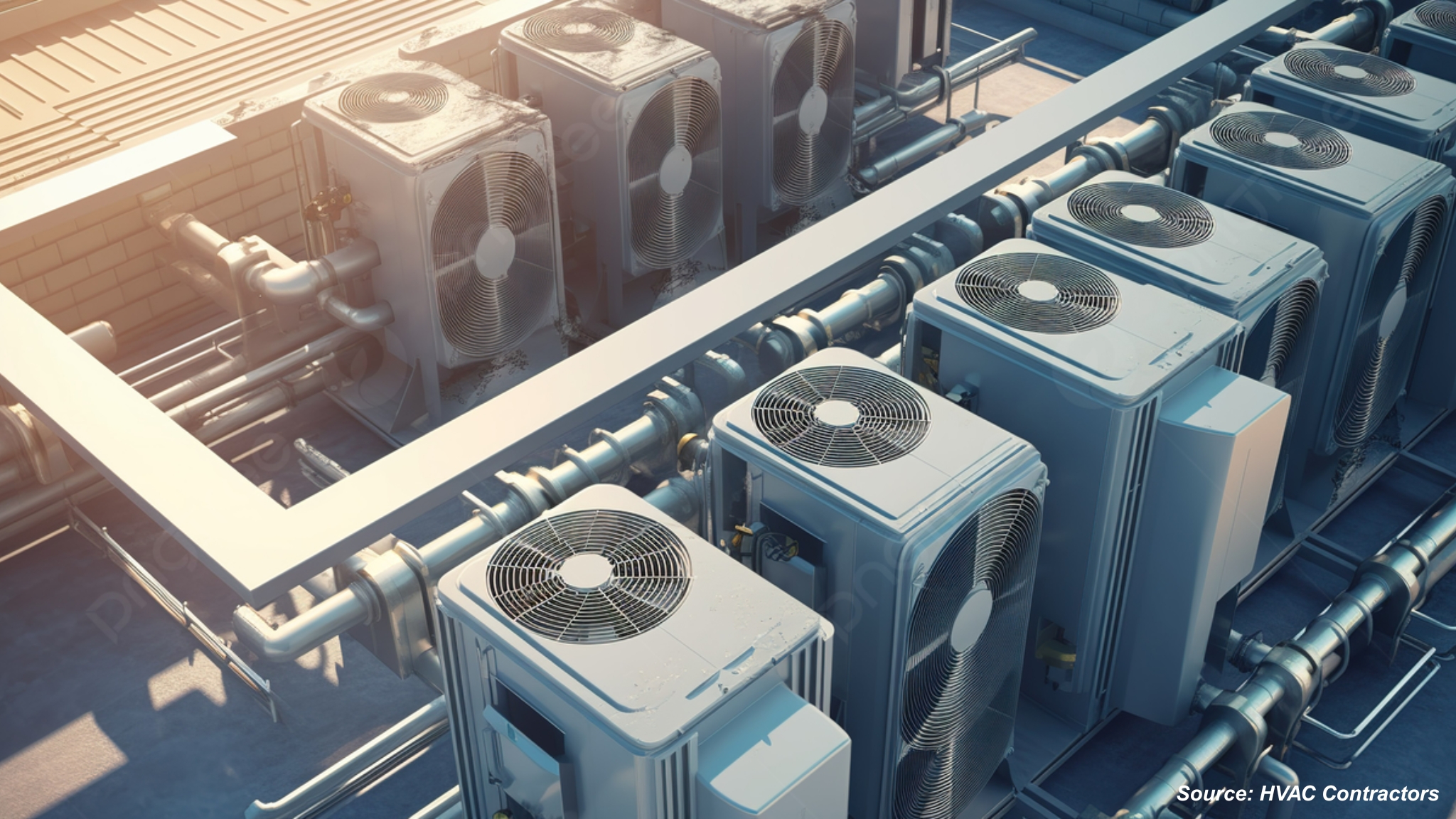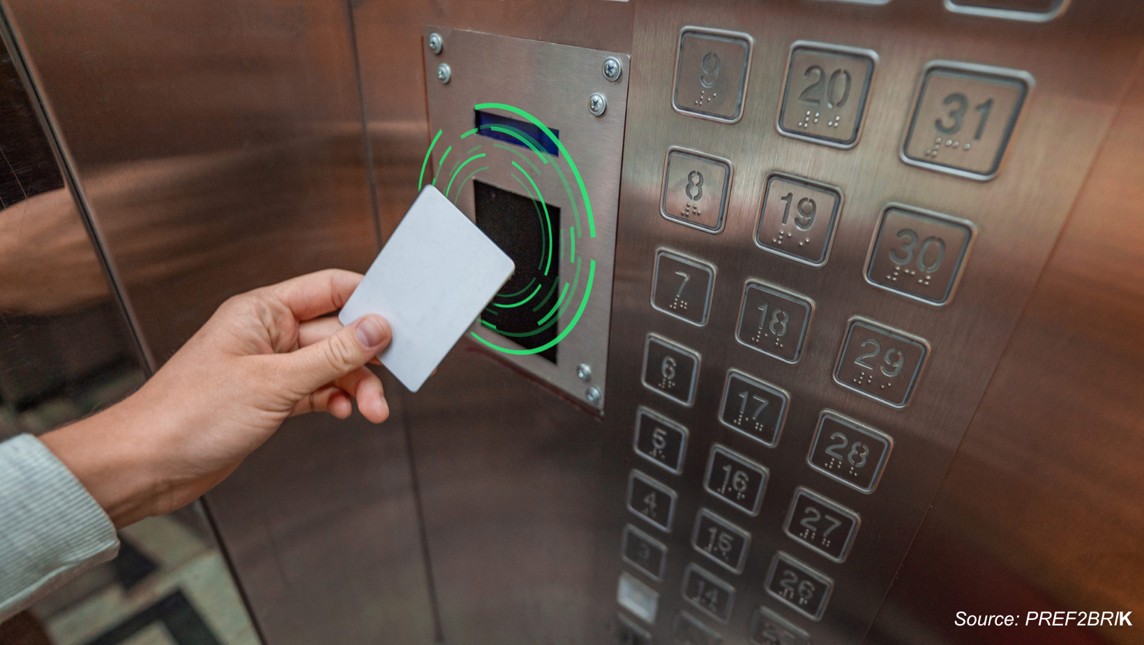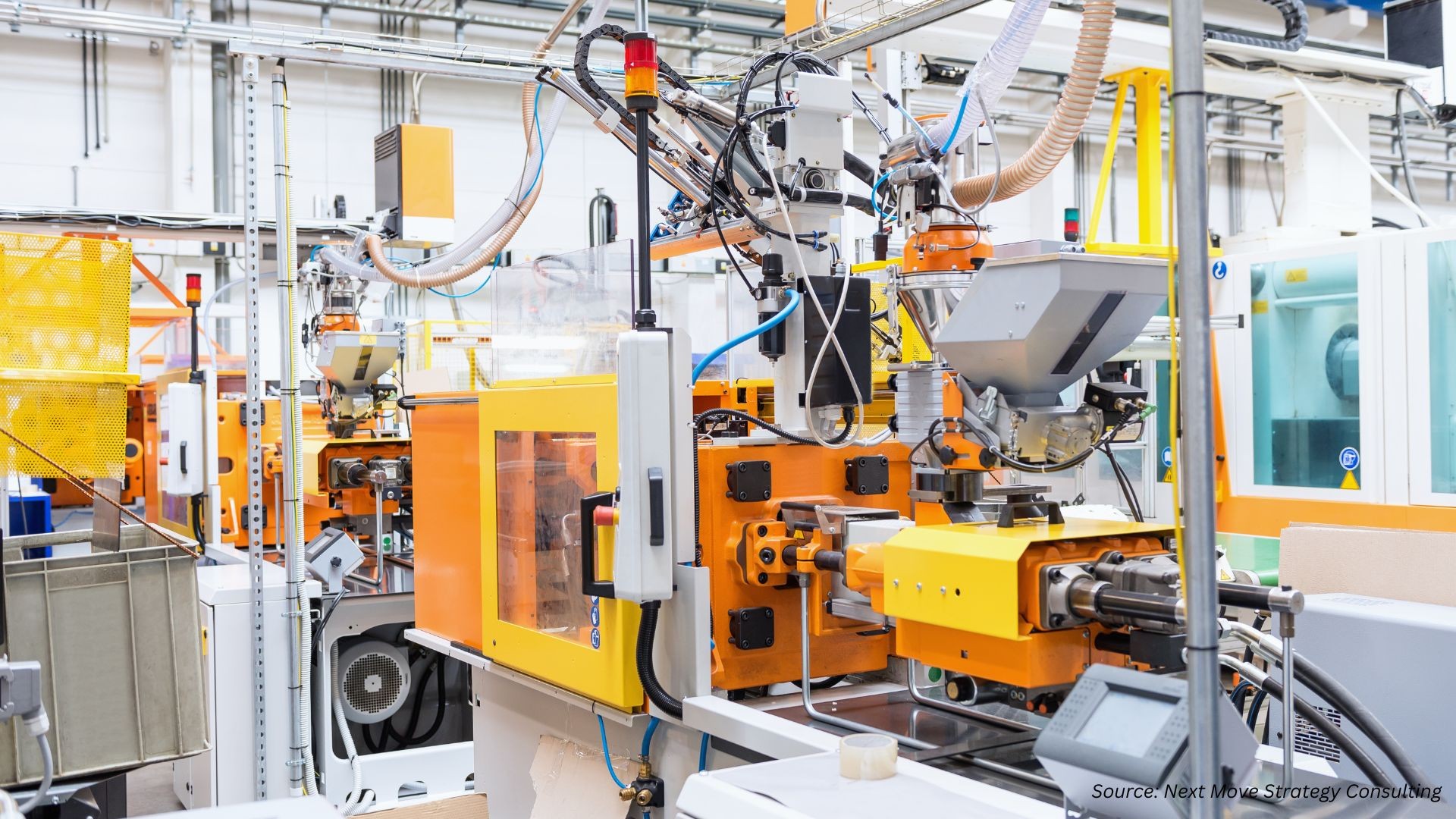How Is IoT Transforming Commercial HVAC Systems?
Published: 2025-10-14

In today's dynamic commercial real estate landscape, the concept of smart buildings is rapidly gaining momentum as businesses prioritize efficiency, comfort, and sustainability. At the forefront of this transformation is the integration of the Internet of Things (IoT) technology into critical building systems, particularly heating, ventilation, and air conditioning (HVAC) systems. These are essential components of modern buildings and are responsible for regulating indoor temperature, air quality, and overall comfort. However, traditional HVAC systems often operate in silos, lacking the ability to adapt to changing conditions in real time.
This is where IoT technology comes into play, revolutionizing how commercial HVAC systems operate and paving the way for a new era of smarter, more efficient, and more sustainable buildings than before. This comprehensive blog explores how IoT revolutionizes commercial HVAC systems, steering in a new era of smarter buildings.
Real-time Monitoring and Control
IoT-enabled HVAC systems leverage a network of sensors, actuators, and connectivity to provide real-time monitoring and control of building environments. These systems continuously collect data on parameters, such as temperature, humidity, air quality, and occupancy levels. This wealth of data allows building managers to gain valuable insights into system performance and occupant comfort in real time.
With remote access capabilities, facility managers can adjust HVAC settings, troubleshoot issues, and optimize system operation from anywhere with an internet connection. This improves overall system efficiency and responsiveness. For instance, in October 2023, AQUIS launched Smartcoil, a real-time monitoring system for air handling unit (AHU) coils. The health of AHU coils is critical to the performance of an HVAC system. SmartCoil utilizes a cloud-based machine learning algorithm to provide real-time alerts and translate raw coil data into insightful analytics available to the customer. This innovative solution empowers users to make informed decisions through real-time monitoring, further enhancing the efficiency and longevity of HVAC systems.
Predictive Maintenance
One of the most significant benefits of IoT integration in commercial HVAC systems is the implementation of predictive maintenance strategies. By analyzing data collected from sensors and equipment, IoT platforms can detect anomalies, identify potential faults, and predict equipment failures before they occur. This proactive maintenance strategy minimizes downtime, extends the lifespan of equipment, and lowers maintenance expenses. Predictive maintenance enables scheduled maintenance activities based on actual system conditions rather than arbitrary schedules, further optimizing system performance and reliability.
Energy Efficiency Optimization
IoT technology plays a crucial role in optimizing energy efficiency within commercial HVAC systems. IoT platforms can dynamically adjust HVAC operations to minimize energy consumption. At the same time, they maintain occupant comfort by analyzing real-time data on building occupancy, weather conditions, and system performance. Smart algorithms optimize equipment scheduling, airflow distribution, and temperature setpoints based on occupancy patterns and external factors. This, in turn, results in significant energy savings and reduced carbon emissions. Additionally, IoT-enabled HVAC systems can integrate with energy management systems to participate in demand response programs. This will further enhance energy efficiency and grid stability.
Integration with Building Management System (BMS)
The integration with the Building Management System (BMS) is critical to IoT-enabled HVAC systems. These systems seamlessly integrate with BMS to establish a centralized control platform that effectively manages various building systems. This integration fosters efficient data sharing among HVAC, lighting, security, and other systems. This, in turn, facilitates coordinated operation and optimization of overall building performance. By leveraging BMS platforms, facility managers gain access to comprehensive dashboards, analytics tools, and reporting capabilities, enabling them to make data-driven decisions aimed at improving building efficiency and sustainability. Centralizing control and monitoring functions through IoT integration simplifies facility management tasks, enhances system interoperability, and streamlines operations.
Furthermore, this integration with BMS enables a holistic approach to building management, in which disparate systems are unified under a single interface. This unified platform enhances visibility and control over building systems, allowing for proactive maintenance and troubleshooting. Facility managers can monitor real-time data, identify inefficiencies, and implement corrective measures promptly. This, in turn, results in optimized performance and reduced energy consumption. Additionally, the seamless integration of IoT-enabled HVAC systems with BMS promotes scalability and future-proofing of building infrastructure. It allows easy adaptation to evolving technological advancements and changing operational needs. Overall, the integration with BMS maximizes the potential of IoT-enabled HVAC systems, driving improved efficiency, sustainability, and operational effectiveness in commercial buildings.
Occupant Comfort and Productivity
IoT-enabled HVAC systems contribute to enhanced occupant comfort and productivity in commercial buildings. By continuously monitoring indoor environmental conditions and adjusting HVAC settings in real time, these systems ensure optimal temperature, humidity, and air quality levels to create a comfortable and healthy indoor environment. The improved comfort levels lead to higher occupant satisfaction, productivity, and overall well-being, benefiting businesses and building occupants alike. Moreover, IoT integration enables personalized comfort settings based on individual preferences and occupancy patterns, further enhancing occupant comfort and productivity.
Sustainable Building Practices
The IoT integration in commercial HVAC systems supports sustainable building practices by optimizing energy usage, reducing waste, and minimizing environmental impact. By leveraging IoT data analytics, building owners and operators can identify opportunities for energy conservation, implement efficiency measures, and track performance metrics to achieve sustainability goals. IoT-enabled HVAC systems also enable demand response capabilities, allowing buildings to participate in energy management programs and contribute to grid stability. Predictive maintenance and optimized energy usage also contribute to lower resource consumption and reduced greenhouse gas emissions. This will further promote environmental sustainability in commercial buildings.
Honeywell, a leading manufacturer of HVAC solutions, offers the Honeywell Forge Energy Optimization solution. This innovative solution harnesses IoT data analytics to optimize energy usage in commercial buildings, encompassing HVAC systems, lighting, and other building system. The solution utilizes machine learning algorithms to analyze real-time data from sensors and other sources. It identifies opportunities for energy conservation and implements efficiency measures to reduce energy consumption and costs. The Honeywell Forge Energy Optimization solution also provides predictive maintenance capabilities, enabling proactive maintenance to prevent system failures and reduce downtime.
Conclusion:
The integration of IoT technology is revolutionizing commercial HVAC systems. This integration drives greater efficiency, sustainability, and occupant comfort in smart buildings. By leveraging real-time data, predictive analytics, and remote-control capabilities, IoT-enabled HVAC systems empower building managers to optimize performance, reduce operating costs, and create healthier indoor environments. As smart building solutions continue to evolve, IoT will play a central role in shaping the future of commercial real estate by enabling smarter, more efficient, and more sustainable buildings than before.
About the Author
 Shankar Nishant is a researcher at Next Move Strategy Consulting with a cumulative experience of more than four years. Shankar is enthusiastic about new technology, enjoys working with diverse global clients, and has delivered numerous market reports in multiple domains.
Shankar Nishant is a researcher at Next Move Strategy Consulting with a cumulative experience of more than four years. Shankar is enthusiastic about new technology, enjoys working with diverse global clients, and has delivered numerous market reports in multiple domains.
About the Reviewer
 Debashree Dey is a skilled Content Writer, PR Specialist, and Assistant Manager with strong expertise in Digital Marketing. She specializes in crafting visibility strategies and delivering impactful, data-driven campaigns. Passionate about creating engaging, audience-focused content, she helps brands strengthen their online presence. Beyond work, she draws inspiration from creative projects and design pursuits.
Debashree Dey is a skilled Content Writer, PR Specialist, and Assistant Manager with strong expertise in Digital Marketing. She specializes in crafting visibility strategies and delivering impactful, data-driven campaigns. Passionate about creating engaging, audience-focused content, she helps brands strengthen their online presence. Beyond work, she draws inspiration from creative projects and design pursuits.















Add Comment